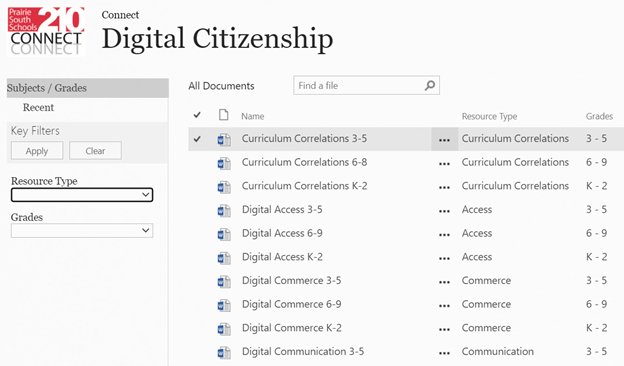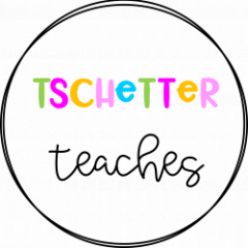In Digital Citizenship
We can warn people about being socially appropriate for our audience when posting, but it doesn’t always seem to make sense until you’ve made your own media “mistake”.
Teaching students about netiquette and visibility settings is a great place to start. But it isn’t enough to protect students from all possible situations they might encounter on the internet. What we should do is teach strategies when consuming and creating media.
Some things to consider are:
- What audience am I trying to reach?
- What media is the best format for what I am trying to share?
- What platform should this be shared on?
- How are my emotions? Will I still feel this way in 1 day, 1 week, 1 year?
- Does this add anything to a conversation?
- Does my voice need to be heard, or should I be lifting up others voice? (Do I belong to this community?)
- Are there facts to support my opinion?
- Do I want this to be a part of my permanent digital footprint/identity?
- Is this safe for me and others to share?
There are many resources and lessons available for teachers to teach about digital literacy and digital citizenship from many sources including, Edutopia, Be Internet Awesome, InCtrl, Common Sense Education, and so many more!
I firmly believe that this isn’t a one time conversation. Digital citizenship needs to be integrated into many areas of curriculum, not just a one day intervention to be forgotten about (I’m looking at you- one-day sexual health education programs). This can be in Social Studies in the context of citizenship, English Language Arts in the context of author’s purpose, Health in mental health and well-being, Science in technology, and almost every other content area.

I feel thankful that our division has prioritized Mental Health and Wellbeing these past two years, and have integrated that throughout the organization, including digital citizenship. We also have Learning Consultants (like myself) available to go into classrooms to introduce topics such as digital citizenship into schools. I am lucky enough to be going into Bart’s class this week to do some learning around digital citizenship!
Through my exploration of this topic with my group this week, I really began to see the value of emotional literacy through the podcast Connect Safely. Watch our group’s video below:
I feel like the education sector in Saskatchewan is beginning to see the value in training teachers about digital citizenship by offering post-secondary courses to teachers about media and digital literacy in education. Classes such as EC&I 832 and EC&I 834 through the University of Regina, and the addition of Educational Technology as a route for MEd students. However, we still have lots of teachers who do not take these courses. We have to build capacity in all our educators if we expect them to teach digital contexts, and add explicit language about digital literacy throughout our curriculum.
This week I’m challenging myself to creating a digital literacy lesson for grades 7/8. I’ll do a follow up blog post this week to post the lesson and my reflection.
Happy Teaching,
Leah


So much emotion goes into what we say and act on social media that bringing attention to it within a classroom is crucial so students do not make a mistake much like Naomi did in her post. It is such a fine line to show how you really might be feeling to what is acceptable to put down on paper or in this case now social media. The questions you posed in your post and in connection with Naomi’s situation could have been avoided if she considered even just a few of them; she still could have shared her excitement in her original post but revamped her wording, and oh lordy then how she talked to a stranger she needed to look at question 4, 8, and 9!
Yes, so much emotion is at play online and sometimes people tend to say things that they may not say face-to-face as they have some security in the online facet of things. This can be very troublesome, as you may be feeling a certain way and say things out of feeling a certain way, and it can either be interpreted wrong, or you could be offending people on a very large scale. I always tell kiddos to take the 24-hour rule before responding to things. Take time to cool off before making any choices that may have negative consequences. This is something that we as adults also need to consider. In my first few years of teaching, I wanted to respond to emails immediately, but after taking some time to think about it, I definitely word things much differently when I have had time to think about it and/or calm down. Great post!
I agree, that digital citizenship should be one of the lenses through which we teach all courses. I would compare it the Truth and Reconciliation, which should be a component of all we do in schools. I would love to see dig cit integrated meaningfully into Social studies and English curriculums, so that all of our students were exposed consistently and meaningfully with the topic. This would also involve much teacher professional development and exposure. Often institutional change is slow to react to change, but I believe it is time to really get serious about digital citizenship within our education system, as it is one of the main lenses through which our youth see and learn in the world!
Great post, Leah! I agree that teaching and learning with an ed-tech lens are so important when we look at digital literacies and 21st-century learning! I laughed at your point about the one-day plug of sexual health… and then nothing. Our outcomes are almost too vague at times. I think Health and ELA could have more content related to dig cit and make these conversations more available so that students can scaffold their learning from K-12 rather than the few times it is mentioned throughout their academic careers. Great thoughts! Thanks!
I made the mistake of reading this at the table and having my son glance over and yell “Emotional damage!” It started a whole thing and now I’m edging up to frustrated – emotional damage? You hit the nail on the head in your post about putting teachers in a position to meaningfully inform about digital citizenship. I have been lucky enough to become a grad student and be able to incorporate a class like EC&I 832 into my own professional growth because it would be tough to replicate this in any kind of PD. Not everyone is taking their masters though, and the topic of digital citizenship or media literacy is enough to scare some people away just by title. To help build confidence and capacity among teachers, how receptive do you think staff would be to gaining some knowledge/understanding/experience through consultants and peers on this topic?